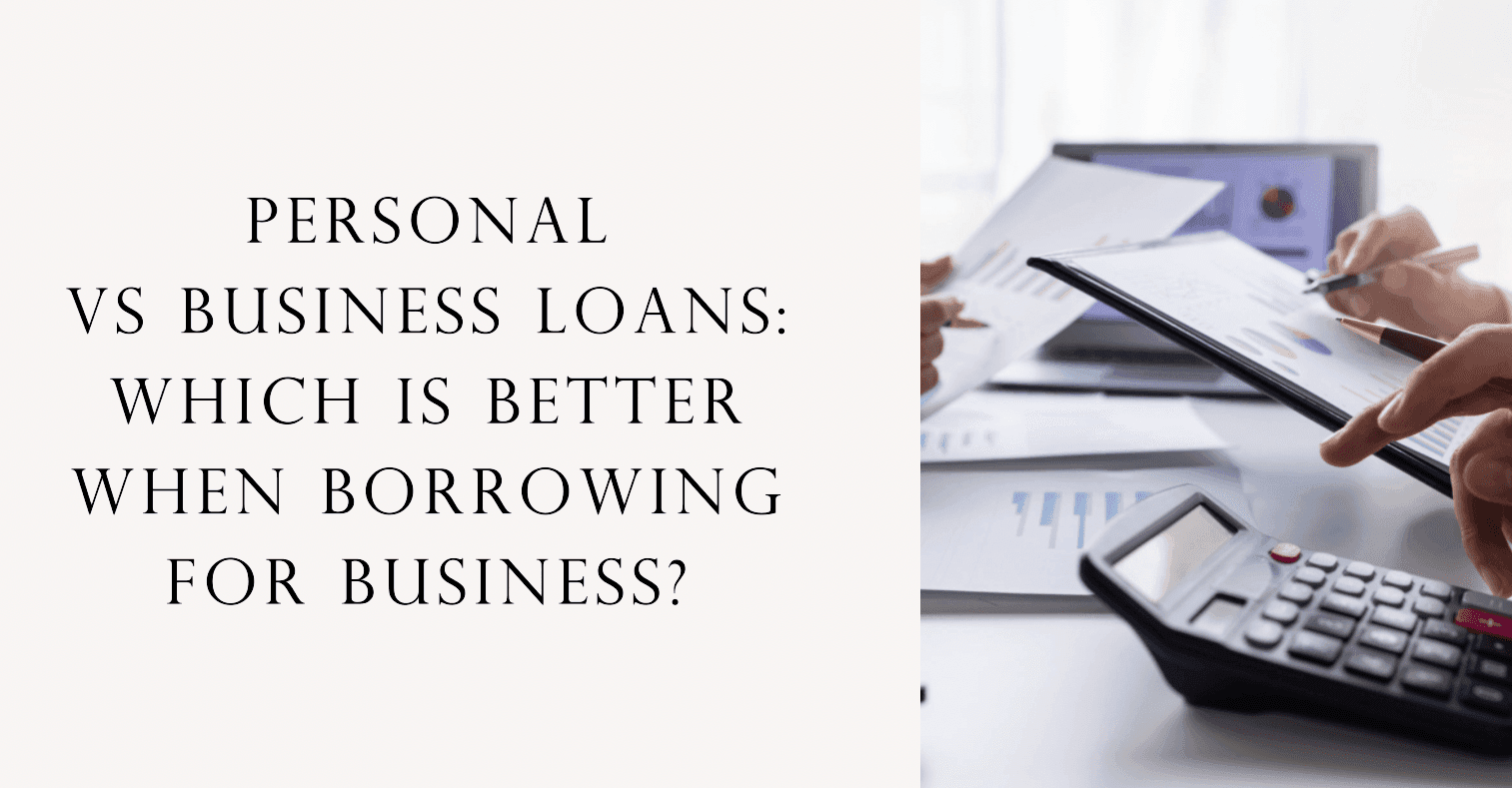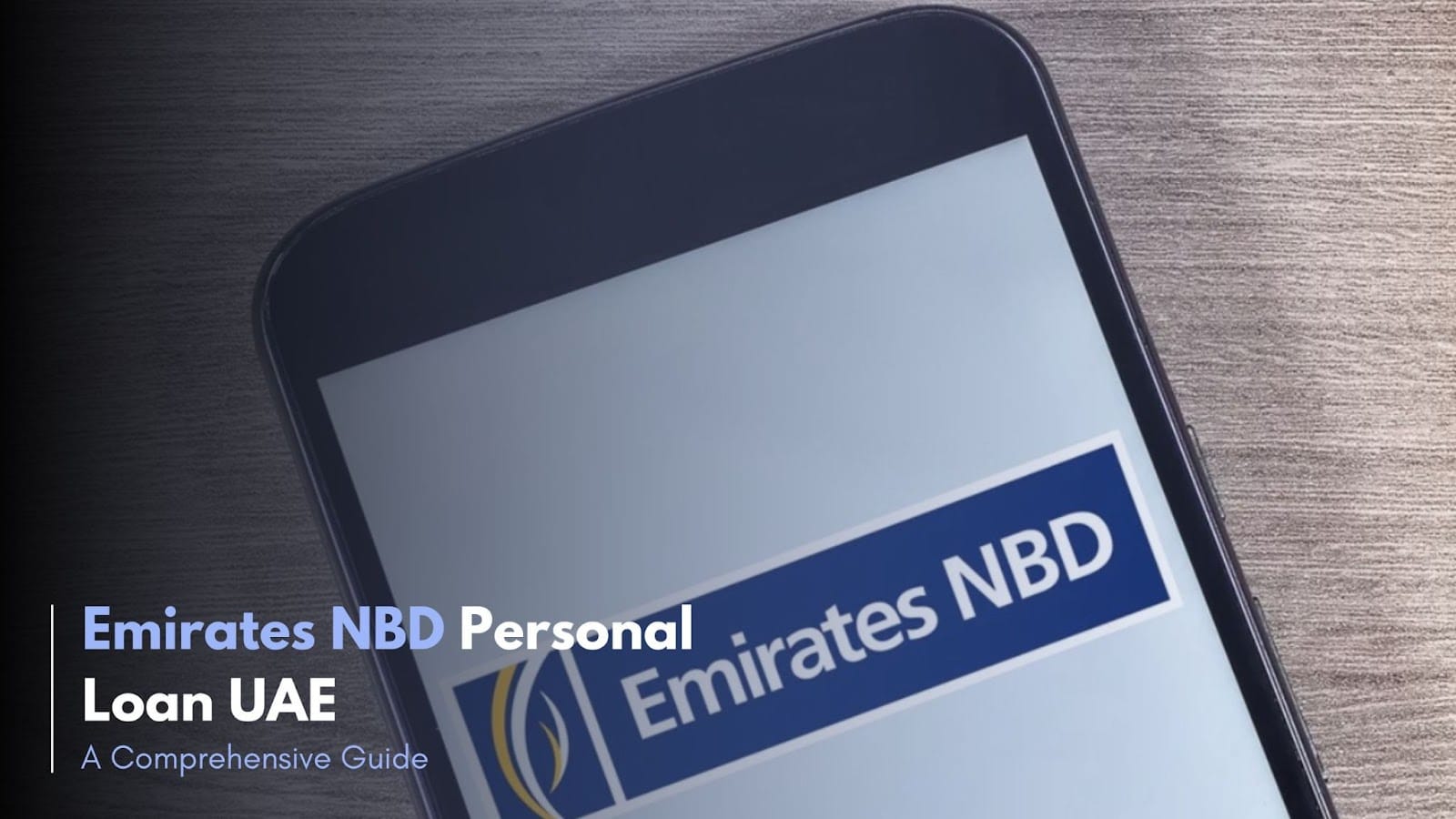Deciding how to fund your business venture can take time and effort. You’ll need to consider how much capital you need, how quickly you need it, and what your financial situation looks like. Two common options are personal loans and business loans.
But what’s the difference between the two? This article will break down everything you need to know about personal loans vs business loans so you can make the best decision for your financial future.
Personal Loans

A personal loan is an unsecured loan provided by a bank, credit union, or online lender. Unsecured means the loan isn’t backed by collateral, like a house or car. These loans are typically offered for a fixed amount of money with a fixed interest rate and repayment term (usually 1-7 years).
Uses of a Personal Loan for Business
While personal loans aren’t ideal for all business needs, they can be a good option for specific situations, especially for new businesses or those with limited credit history.
Here are some common scenarios where a personal loan can be used to fund a business:
- Financing Initial Inventory or Supplies: A personal loan can help bridge the gap between securing your first customers and having the inventory on hand to fulfil those orders.
- Purchasing Equipment: Equipment like computers, software, or specialised tools can be crucial for your business. A personal loan can help cover the upfront cost.
- Marketing and Advertising: Launching a marketing campaign can be expensive. A personal loan can help finance initial marketing efforts to get your business off the ground.
- Covering Short-Term Cash Flow Gaps: Unexpected expenses can disrupt your business cash flow. A personal loan can provide a temporary bridge to keep things running smoothly.
Key Characteristics of a Personal Loan
Loan Amounts
Personal loans typically have a range of amounts allowed though some lenders may offer higher or lower limits. However, it’s important to consider the maximum amount you can comfortably repay. Taking out a loan for the maximum amount can leave you house-poor, even if you qualify.
Interest Rates
Interest rates on personal loans can vary depending on your creditworthiness, loan amount, and lender. Rates typically range from 6% to 36% APR (Annual Percentage Rate). Keep in mind that a higher credit score will qualify you for a lower interest rate.
The APR also factors in any fees associated with the loan, so be sure to compare offers that include the APR to get a true picture of the cost.
Repayment Terms
Personal loans usually have fixed repayment terms, ranging from 12 to 84 months. You’ll make a set monthly payment that covers both principal (the original loan amount) and interest. A longer repayment term will result in lower monthly payments, but you’ll end up paying more interest overall. Choose a repayment term that fits your budget and goals.
Credit score requirements
Qualifying for a personal loan depends on your credit score. Generally, lenders prefer borrowers with good to excellent credit (typically above 670). However, some lenders may offer personal loans to borrowers with lower credit scores but at a higher interest rate.
Collateral requirements
Personal loans are typically unsecured, meaning you don’t need to put up any collateral. This can be attractive because you won’t risk losing personal assets if you default on the loan. However, unsecured loans also come with higher interest rates than secured ones. Some lenders may offer secured personal loans with lower interest rates in exchange for collateral.
Advantages and Disadvantages of Using a Personal Loan for Business
Advantages:
- Fast and Easy Approval: Compared to business loans, personal loans often have a faster and easier application process.
- Flexibility in How You Use the Funds: You can use the loan amount for any legitimate business purpose.
- No Business History Required: Personal loans focus on your personal credit history, which can be helpful for new businesses without an established business credit history.
Disadvantages:
- Higher Interest Rates: Personal loans typically come with higher interest rates compared to business loans.
- Smaller Loan Amounts: The maximum loan amount for a personal loan may not be enough to cover significant business needs.
- Mixing Personal and Business Finances: Using a personal loan for business can blur the lines between your personal and business finances. This can complicate record-keeping and taxes.
Business Loans

A business loan is a financial product specifically designed to help businesses meet their funding needs. Unlike personal loans, business loans are typically secured by business assets or require a personal guarantee from the business owner. This allows lenders to offer larger loan amounts and potentially lower interest rates compared to personal loans.
Types of Business Loans:
There are many different types of business loans available, each with its own unique features and purposes. Here’s a brief overview of some common types:
Term Loans
These are traditional fixed-amount loans with a set repayment term and interest rate. Term loans are a good option for financing specific needs like purchasing equipment or expanding your business location.
Lines of Credit
A business line of credit functions similarly to a credit card. You are approved for a maximum credit limit and can draw on funds as needed, only repaying interest on the amount used. Lines of credit are a good option for ongoing operational expenses or unexpected costs.
Key Characteristics of Business Loans
Loan amounts
Business loans offer significantly more flexibility compared to personal loans. They can range from a few thousand dollars to millions of dollars, catering to a wider range of business needs. The specific amount you can qualify for will depend on the type of loan, your business’s financial health (including revenue, profitability, and cash flow), and your creditworthiness.
Interest rates
Generally, business loans come with lower interest rates than personal loans. This is because lenders perceive businesses as less risky borrowers, especially those with a proven track record and solid financial statements.
However, the exact interest rate you receive will depend on several factors, including:
- The type of loan: Term loans typically have lower rates than lines of credit.
- Your creditworthiness: Businesses with strong credit history (both personal and business) will qualify for lower interest rates.
- The loan term: Longer repayment terms often come with slightly higher interest rates.
- The lender: Different lenders have varying interest rate structures based on their risk assessment.
Repayment Terms
Business loans offer a wider variety of repayment terms compared to personal loans. Term loans have fixed repayment terms (usually 1-7 years) with a monthly payment covering both principal and interest.
Qualification Requirements
Qualifying for a business loan typically requires a more rigorous process compared to personal loans. Here are some key factors lenders consider:
- Solid business plan: A well-defined business plan outlining your business goals, strategies, and financial projections demonstrates your preparedness and reduces the lender’s risk.
- Good credit history (both personal and business): Strong credit scores for both the business and the owner(s) are essential for securing lower interest rates and approval.
- Financial statements: Providing accurate and up-to-date financial statements (income statements, balance sheets, and cash flow statements) allows lenders to assess your business’s financial health and ability to repay the loan.
- Collateral: Some lenders may require collateral, such as property or equipment, to secure the loan, especially for larger loan amounts or situations where the business has a limited credit history.
Collateral requirements
Business loans can be secured or unsecured. Secured loans require you to pledge collateral, such as real estate, inventory, or equipment, to guarantee repayment. They typically offer lower interest rates due to the reduced risk for the lender. In the event of default, the lender can seize the collateral to recoup their losses.
On the other hand, unsecured loans are based solely on the creditworthiness of the borrower and the business. They often come with higher interest rates than secured ones, but they eliminate the risk of losing assets in case of default.
Advantages and Disadvantages of Using a Business Loan
Advantages
- Larger Loan Amounts: Business loans can provide significantly more capital than personal loans, allowing you to finance larger business needs.
- Potentially Lower Interest Rates: Business loans often come with lower interest rates compared to personal loans.
- Keeps Personal and Business Finances Separate: Using a business loan keeps your personal finances separate from your business finances, simplifying accounting and taxes.
Disadvantages
- More Complex Application Process: Qualifying for a business loan typically involves a more complex application process compared to personal loans.
- Stricter Qualification Requirements: Business loans often have stricter qualification requirements, including a strong business plan and a good credit history.
- Risk of Losing Collateral: If you default on a secured business loan, you could lose the collateral you pledged.
Deciding Between a Personal and Business Loan
Choosing between a personal loan and a business loan is a crucial step in financing your business. Understanding the key factors at play will equip you to make an informed decision.
Factors to Consider
Purpose of the Loan
Carefully consider what you’ll use the loan funds for. Personal loans are not ideal for all business needs. They might be suitable for smaller, short-term requirements, such as covering initial inventory costs, purchasing essential equipment, or launching a marketing campaign.
Business loans, on the other hand, are better suited for larger expenses or long-term investments, like acquiring real estate, expanding your product line, or financing a major equipment upgrade.
Amount of Capital Needed
The amount of capital you require plays a significant role. Personal loans typically have lower maximum limits than business loans, which can reach millions of dollars. If you need substantial funding to fuel your business growth, a business loan is the more realistic option.
Creditworthiness
Your personal and business credit scores will be considered. Personal loans rely heavily on your personal credit history. If you have good to excellent credit (typically above 670), you may qualify for a personal loan with a favourable interest rate.
Business loans may also consider your business credit history, especially if your business is established. A strong overall credit picture (both personal and business) will increase your chances of securing a loan with favourable terms.
Risk Tolerance
Carefully assess your risk tolerance. Personal loans are typically unsecured, meaning you don’t put up any assets as collateral. However, they often come with higher interest rates. Business loans can be secured or unsecured. Secured loans require collateral, but they generally offer lower interest rates. The risk of losing collateral if you default on a secured business loan needs to be weighed against the potential cost savings from a lower interest rate.
Long-Term Business Goals
Consider your long-term business goals. If you plan to grow your business significantly, a business loan might be a better option as it allows you to access larger amounts of capital. Using a business loan also establishes a separate borrowing history for your business, which can be beneficial in the future when seeking additional financing.
Scenarios: Personal Loan vs. Business Loan
Here are some examples to illustrate when each type of loan might be the most suitable option:
Scenario 1: Financing Initial Inventory
You’re a new bakery owner and need AED 10,000 to purchase initial ingredients and baking supplies.
Possible Solution: A personal loan could be a good option if you have good credit and don’t require a large sum.
Scenario 2: Expanding Your Manufacturing Facility
You’ve been running a successful woodworking business for two years and need AED 200,000 to purchase new equipment and expand your production capacity.
Possible Solution: Due to the significant capital required, a business loan is likely the most suitable option. Secured loans might offer lower interest rates, but be prepared to put up collateral like your existing equipment.
Conclusion
Deciding between personal and business loans is crucial for your company’s growth. Understanding the key factors at play empowers you to make an informed decision.
Business loans offer larger sums, potentially lower interest rates, and keep your finances separate. The application process is more complex, and stricter requirements exist.
On the other hand, personal loans are faster to secure and don’t require a business plan, but they come with higher interest rates and limitations on how much you can borrow. Remember that consulting with a financial advisor can provide invaluable guidance for choosing the right loan option to propel your business forward.







